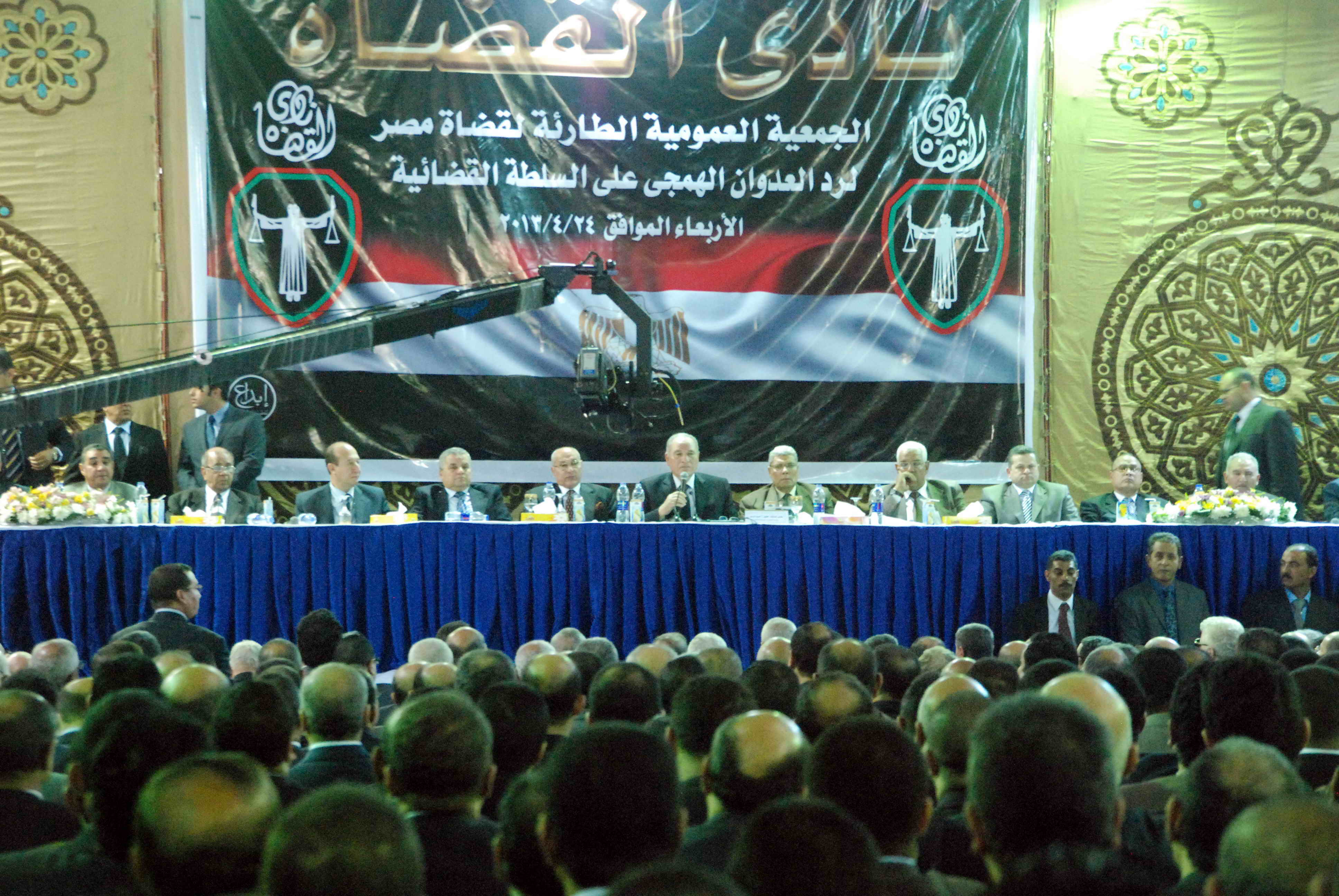What have a downing a cup of coffee and the modern age got in common? One leaves you feeling a little less corpse-like early morning, the other leaves corpses strewn in a savage cultural onslaught. “Ahwa Sada (Unsweetened Coffee), the latest production from scriptwriter/theater director Khaled Galal, offers you a sip of both, and in doing so, wakes you up to a few home truths.
“Unsweetened Coffee, currently showing at the Cairo Opera House’s Artistic Creativity Center, is a cultural mourning drink in Arabic culture, sipped by relatives and friends of the deceased.
In “Ahwa Sada, Galal’s prodigy, the deceased, is the glorious past, noble, filled with integrity, good manners, high class and beauty. The mise en scène draped in red majesty, becomes that of a metaphorical death.
The funeral procession, donned in chic black dresses and suits, each carry a relic of the past, a vestige of a time long since buried. An old radio, an antique clock, a manual coffee grinder, old movies, and finally come faded, sepia prints. Saad Zaghloul, Om Kolthoum, Abdel Halim Hafez, Layla Mourad, Salah Jahin, and many others, which, one by one, with due ceremonious tears, form a nostalgic headstone.
And thus the headstone is set for the audiences’ journey into modern Egypt, where the crude commodity has laid waste to the meaning of virtue. Om Kolthoum’s dulcet, rich mournful tones, singing of graceful love, give way to the harsh rasps of Hakim. Each song elicits a response from a group of female aficionados.
Of course Om Kolthoum is described with words denoting deep and admirable beauty. For Hakim’s tribute, the girls’ chic attire is cheapened by the ugly green wigs they don. I was reminded of the screeching foundation plastered girl who stood in my way in the queue, crying “where you go, foreigner as I made my way past her to escape her shrieking cackles as she flirted with the boys in the parallel line.
The future, as envisaged in the following sketch, is linguistically darker. As an aging poet delivers his memories of the Egyptian book fair of 2008, the Arabic language becomes virtually unrecognizable. Surely the transformation of any language is to be expected, but this envisages something rapid, an unfettered, untamable deterioration of communication into an idiomatic apocalypse. It’s not that “Ahwa Sada illustrates the journey that the Egyptian language has taken since the 1950s, but takes up the death of language as we know it.
The skits and sketches that follow address issues running in the same socio-cultural vein. My dearth of “language of the shabab (the youth) became a marginal issue, eclipsed by flawless choreography and evocative lighting, not to mention acting that outstripped most contemporary screen performances.
Our journey through rotten, post-Modern Egypt takes us through the traumas of the bread crisis, absurd breast feeding fatwas, the disintegration of the family, murderous price hikes and finally the deaths of immigrants who met a watery grave, their seaweed bound bodies washed up on the Italian coast.
Yet each sketch is laced with the dark trappings of irony. A favorite scene parodied the action genre. The lights go up to actor Mohamed Fahim crying “Hamza whilst cradling the body of his dead friend. He then embarks on a ninja-esque retribution in a visually awesome but equally hysterical mime scene, taking out Hamza’s adversaries before meeting the “big boss.
Faced with certain death, the ‘big boss’ marches off stage; his corpulent strides making the prostrate bodies shudder (a touch of choreographic innovation), and brings back a bread basket. It is Egyptian humor at its best; self-derogatory, ridiculous, yet spiked with tragedy.
It’s the same humor that paradoxically accompanies debilitating cultural and moral breakdown but ironically makes it bearable. The resentment shown towards what are portrayed as oiled, fervid money-grubbing Gulf Arabs comes coated in satire via a trio of equally bitter and pointed sketches.
In one, two businessmen survey an Egyptian singer outbidding one another as one would bid for a dog in an auction. In another, far more absurd skit, a TV producer from the Gulf, creates a new hero of the Egyptian Revolution of 1952: Nawaf El-Ghamdi from the Gulf. The audience was left not knowing whether to cry with laughter or sorrow.
The determining loss of cultural heritage is delivered in a communal scene where a father delivers his will to his “modernized children. As the father relates the stories behind the items to be inherited, the children prove themselves entirely cut off from the sources of the famous names of Egyptian history. The difference between Sayeda Zeinab and Saad Zaghloul no longer have any meaning as two very distinct characters, living in eras centuries apart; they are known merely as metro stops.
“Ahwa Sada presents an ominous dystopia of present-day Egypt. The fruits of an eight-month workshop, it’s proof that hard work and attention to detail can produce slick, intelligent and hard-hitting theater.
Catch “Ahwa Sada at Cairo Opera House’s Artistic Creativity Center everyday, 8 pm. Tel: (02) 2736 3446. Admission is free.

